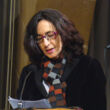The Soul Thief: A Novel
(Libby/OverDrive eBook, Kindle)
Author
Contributors
Baxter, Charles Author
Published
Knopf Doubleday Publishing Group , 2008.
Status
Available from Libby/OverDrive
Available Platforms
Libby/OverDrive
Titles may be read via Libby/OverDrive. Libby/OverDrive is a free app that allows users to borrow and read digital media from their local library, including ebooks, audiobooks, and magazines. Users can access Libby/OverDrive through the Libby/OverDrive app or online. The app is available for Android and iOS devices.
Kindle
Titles may be read using Kindle devices or with the Kindle app.
Description
Here is an extraordinary new novel from one of our most admired and acclaimed writers, a creator of "stunning, never predictable, glimmering fiction, full of mischief and insight” (Los Angeles Times). During Nathaniel Mason’s first few months as a graduate student in upstate New York, he is drawn into a tangle of relationships with people who seem to hover just beyond his grasp. There’s Theresa, alluring but elusive, and Jamie, who is fickle if not wholly unavailable. But Jerome Coolberg is the most mysterious and compelling. Not only cryptic about himself, he seems to have appropriated parts of Nathaniel’s past that Nathaniel cannot remember having told him about. It is Jerome who seems to trigger the events that precipitate Nathaniel’s total breakdown, and Jerome who shows up 30 years later--Nathaniel having finally reconstituted his life--to suggest, with the most staggering consequences, that Nathaniel’s identity may in fact not be his own.In The Soul Thief, Charles Baxter has given us one of his most beautifully wrought and unexpected works of fiction: at once lyrical and eerie, acutely observant in its sensual and emotional detail and audaciously metaphysical in its underpinnings. It is a brilliant novel--one that is certain to expand both his already-stellar reputation and his readership.
More Details
Format
eBook
Street Date
02/12/2008
Language
English
ISBN
9780307377098
Subjects
Excerpt
Loading Excerpt...
Similar Titles From NoveList
NoveList provides detailed suggestions for titles you might like if you enjoyed this book. Suggestions are based on recommendations from librarians and other contributors.
These books have the appeal factors stylistically complex, and they have the genre "psychological fiction"; and the subjects "love triangles," "obsession," and "unrequited love."
These books have the appeal factors lyrical, stylistically complex, and character-driven, and they have the genres "psychological fiction" and "literary fiction"; the subjects "graduate students," "identity," and "college teachers"; and characters that are "complex characters."
These books have the appeal factors stylistically complex, and they have the genres "psychological fiction" and "literary fiction"; and the subjects "love triangles," "graduate students," and "college teachers."
These books have the appeal factors haunting and lyrical, and they have the genres "psychological fiction" and "literary fiction"; the subjects "graduate students" and "college teachers"; and characters that are "flawed characters."
These books have the appeal factors stylistically complex and intricately plotted, and they have the genres "psychological fiction" and "literary fiction"; and characters that are "complex characters" and "well-developed characters."
These books have the appeal factors stylistically complex and unnamed narrator, and they have the genres "psychological fiction" and "literary fiction"; the subjects "graduate students," "college teachers," and "obsession"; and characters that are "complex characters."
These books have the appeal factors stylistically complex, character-driven, and intricately plotted, and they have the genres "psychological fiction" and "literary fiction"; the subjects "love triangles" and "alienation"; and characters that are "flawed characters" and "complex characters."
These books have the appeal factors lyrical, stylistically complex, and intricately plotted, and they have the genres "psychological fiction" and "literary fiction"; the subjects "love triangles," "friendship," and "life change events"; and characters that are "sympathetic characters" and "complex characters."
These books have the appeal factors stylistically complex, and they have the genres "psychological fiction" and "literary fiction"; and the subjects "love triangles," "breaking up (interpersonal relations)," and "identity."
These books have the appeal factors character-driven and intricately plotted, and they have the subjects "love triangles," "graduate students," and "friendship."
These books have the appeal factors lyrical and stylistically complex, and they have the genres "psychological fiction" and "literary fiction"; and the subjects "interpersonal relations," "breaking up (interpersonal relations)," and "identity."
These books have the appeal factors stylistically complex and intricately plotted, and they have the genre "love stories"; the subjects "love triangles" and "graduate students"; and characters that are "sympathetic characters," "flawed characters," and "complex characters."
Similar Authors From NoveList
NoveList provides detailed suggestions for other authors you might want to read if you enjoyed this book. Suggestions are based on recommendations from librarians and other contributors.
These authors' works have the appeal factors melancholy and lyrical, and they have the genres "psychological fiction" and "literary fiction"; the subjects "married people," "extramarital affairs," and "marital conflict"; and characters that are "complex characters" and "authentic characters."
These authors' works have the appeal factors stylistically complex and stream of consciousness, and they have the genre "psychological fiction"; and the subjects "fiction writing," "writing," and "graduate students."
These authors' works have the appeal factors offbeat, stylistically complex, and unnamed narrator, and they have the genres "psychological fiction" and "literary fiction"; the subjects "fiction writing," "writing," and "married people"; and characters that are "introspective characters."
These authors' works have the appeal factors lyrical, stylistically complex, and witty, and they have the genres "psychological fiction" and "literary fiction"; the subjects "interpersonal relations," "fiction writing," and "writing"; and characters that are "authentic characters."
These authors' works have the appeal factors lyrical and stylistically complex, and they have the genres "psychological fiction" and "literary fiction"; the subjects "interpersonal relations," "small towns," and "actors and actresses"; and characters that are "complex characters."
These authors' works have the appeal factors sardonic, haunting, and lyrical, and they have the genres "psychological fiction" and "literary fiction"; the subjects "interpersonal relations" and "best friends"; and characters that are "complex characters."
These authors' works have the genre "psychological fiction"; and the subjects "lovers," "fiction writing," and "actors and actresses."
These authors' works have the appeal factors lyrical and stylistically complex, and they have the genres "psychological fiction" and "literary fiction"; the subjects "interpersonal relations," "jewish men," and "graduate students"; and characters that are "complex characters" and "introspective characters."
These authors' works have the appeal factors melancholy, haunting, and lyrical, and they have the genres "psychological fiction" and "literary fiction"; the subjects "interpersonal relations," "small towns," and "love triangles"; and characters that are "complex characters" and "introspective characters."
These authors' works have the appeal factors lyrical, stylistically complex, and intricately plotted, and they have the genres "psychological fiction" and "literary fiction"; the subject "interpersonal relations"; and characters that are "complex characters" and "well-developed characters."
These authors' works have the appeal factors haunting and stylistically complex, and they have the genres "psychological fiction" and "love stories"; and the subjects "fiction writing," "suicide," and "writing."
These authors' works have the appeal factors reflective, lyrical, and intricately plotted, and they have the genres "psychological fiction" and "literary fiction"; the subjects "single women" and "young women"; and characters that are "complex characters," "introspective characters," and "flawed characters."
Reviews from GoodReads
Loading GoodReads Reviews.
Citations
APA Citation, 7th Edition (style guide)
Baxter, C. (2008). The Soul Thief: A Novel . Knopf Doubleday Publishing Group.
Chicago / Turabian - Author Date Citation, 17th Edition (style guide)Baxter, Charles. 2008. The Soul Thief: A Novel. Knopf Doubleday Publishing Group.
Chicago / Turabian - Humanities (Notes and Bibliography) Citation, 17th Edition (style guide)Baxter, Charles. The Soul Thief: A Novel Knopf Doubleday Publishing Group, 2008.
Harvard Citation (style guide)Baxter, C. (2008). The soul thief: a novel. Knopf Doubleday Publishing Group.
MLA Citation, 9th Edition (style guide)Baxter, Charles. The Soul Thief: A Novel Knopf Doubleday Publishing Group, 2008.
Note! Citations contain only title, author, edition, publisher, and year published. Citations should be used as a guideline and should be double checked for accuracy. Citation formats are based on standards as of August 2021.
Copy Details
| Collection | Owned | Available | Number of Holds |
|---|---|---|---|
| Libby | 1 | 1 | 0 |
Staff View
Loading Staff View.
































